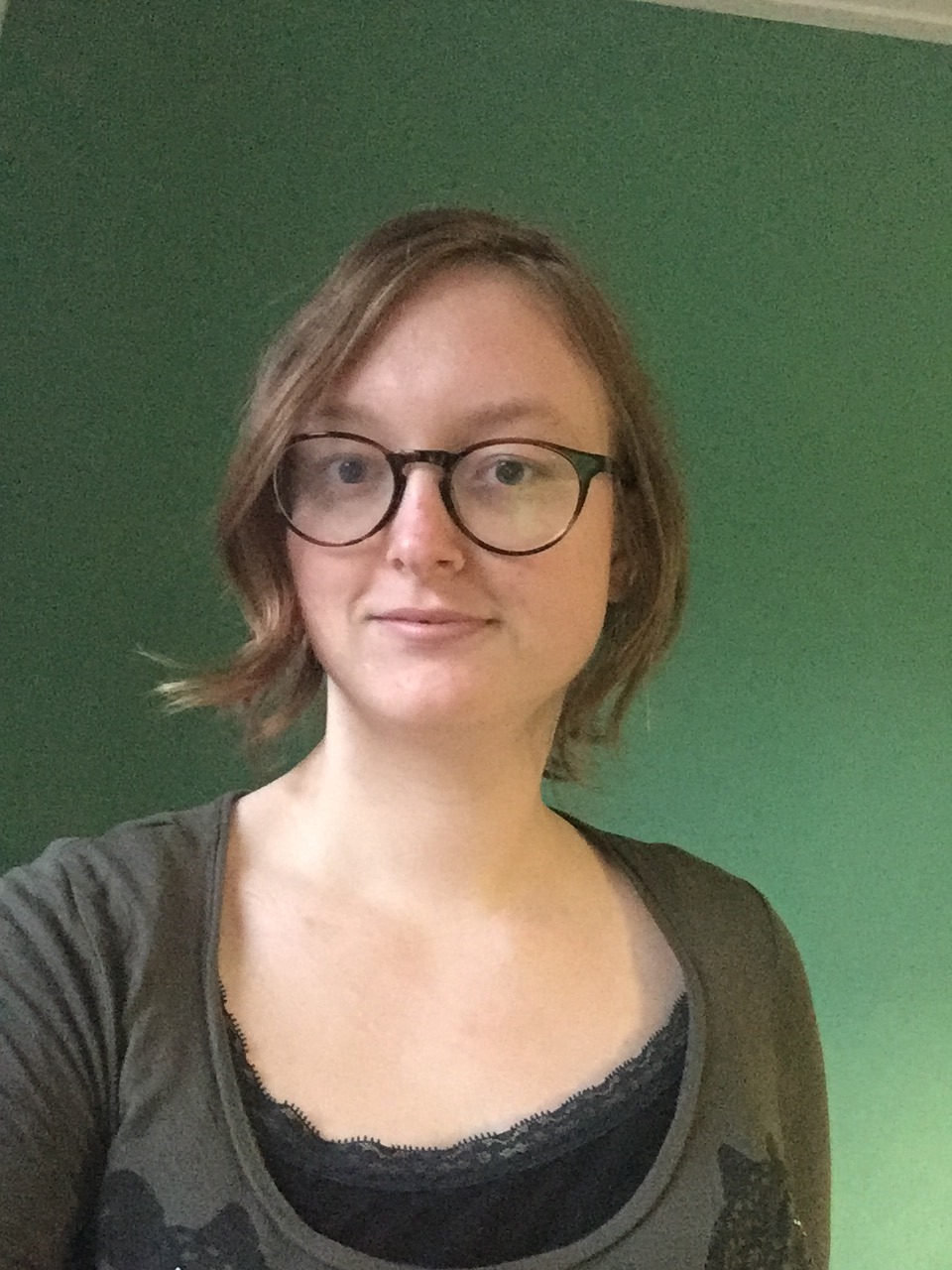5 Things I Learned During the First Year of my PhD
Published:
My very first blog post, on my experiences as a first-year PhD candidate at CLTL. I mention 5 things I learned this year!

Image: CC0 licence from pixabay
It’s the 16th of September 2021, which means it is exactly one year since I started as a PhD candidate! Since one of my 2021-2022 academic year’s resolutions is to start blogging, this is a great opportunity to write my very first blog post! Let’s hope it sticks.1
My PhD is on Diversity in News Recommendation, and I work at CLTL (Computational Linguistics and Text Mining Lab) at the Free University of Amsterdam (VU), supervised by both prof. dr. Antske Fokkens (of the VU) and dr. Suzan Verberne (of Leiden University). I am still very happy I got to do this specific PhD! I’m especially interested in how it connects language technology to other disciplines, such as social science. It fits my research interest well: societally and scientifically responsible Natural Language Processing (NLP) (also sometimes known as computational linguistics) in complex domains.2
Despite the obvious limitations of starting a PhD during the global COVID-19 pandemic, I learned many things during my first year - and I hope writing them down will be helpful to both me and you!
So what did I learn during the first 12 months of my PhD?
1. I learned to write
Of course I could write before I started my PhD! I could even write in the scientific genre: I completed two master theses on clinical NLP. However, at the start of my PhD I realized I actually could not write well in the way my field demanded.
You see, I have a background in the Humanities, specifically a BA in English Language and Culture and a Research MA in Linguistics. While this background really helped me to learn to think and read, the writing was very different from the sort expected of me in my PhD. Computational Linguistics is an interdisciplinary field, but very technical. The writing required is much more like the one explained in this Twitter thread: short, concise, and to the point.
I tended to write long, complex sentences connecting several ideas. This was writing that got me good grades for essay writing during my BA, but my PhD advisors (and reviewers!) consistently called it verbose and unclear.
I have come to believe that great writing means being able to convey complex ideas and research findings in a clear and concise manner.
The good news is: my advisors helped me by commenting on it, and recently told me that my writing has gotten better! I try to avoid unnecessary words, and if an idea is complex I cut it up into several shorter sentences. The comments from my reviewers changed as well, with less comments on my writing in my third paper (accepted and coming soon!, submitted in August 2021) than in my first paper (submitted in January 2021).
So, there seems to be an upwards trend, let’s hope it continues! I now actively try to catch myself if I get lengthy or complex. I ask myself: Can I explain this simpler? (And usually the answer is, to channel both Bob the Builder and former U.S. President Barack Obama: Yes We Can!).
2. I learned a lot from specialists from other disciplines
As said, my project is on diversity in news recommendation. News recommender systems are services like Google News or Microsoft News, recommending users news articles based on their interest. A lack of diversity in such recommendations can lead to all kinds of societal and individual harms. My project group focuses on the harms to democracy, and information awareness of citizens in a democracy. This means: do people only get recommended news articles on issues and viewpoints they already like? And how can we nudge people to more diverse content to enable full participation in public debate on these issues?
As the computational linguist of the project, I will hopefully build computational models that will help recommenders distinguish between different viewpoints. The interdisciplinary project team however also has other experts: researchers on recommender systems, (online) communication and political science, as well as experts on legal and ethical issues.
I learned that the important part of interdisciplinary projects on complex societal problems is to not stop talking & listening to each other.
I spent a lot of my time talking to these specialists about our project, mostly through chat and video call. In this way we also wrote a paper together. This was enlightening but also incredibly frustrating! Sometimes, my colleagues and I thought we understood each other, but we found out later we didn’t understand or agree at all! This was the case for even very basic things (like what an “algorithm” is), as well as more complex details (on what “ethics in AI” or “bias” mean). Suddenly, during a casual conversation, you realize how wide the gap is between your disciplines. In the worst cases, this means that there has been a very crucial misunderstanding between you, or a misunderstanding of a basic concept in your or their discipline. Weeks of thinking or writing became useless! Aaargh!
These talks also led to me seeing my field and research through an outsider’s eyes, which was incredibly useful. I was sometimes even a little scared to have these conversations! I learned concepts completely new to me, and it took a while for me to fully grasp them. An example is the “deliberative democracy” and other theoretic models of democracy. What does this mean? How does it relate to my own field and the methods in it?
To answer these questions, I started to write my first paper. Writing this paper was helpful to gather my thoughts on what NLP methods and tasks were useful for our project and my PhD. However, writing this paper also led to a third lesson..
3. I learned to navigate my field, and the papers, projects, and people in it.
As a master’s student, I of course read academic papers and learned about discussions in my field. A course on Text Mining for instance taught about bias in word embeddings and core papers about this. But in my experience, a PhD is definitely different. As I was writing my first paper, I really dove into my discipline. What does it mean to do NLP? What is currently happening in my field?
At (now online) conferences, of which I visited 6 this year, I tried to soak up what people were writing and talking about. I found out there were several currently popular issues, such as generalization in NLP (can our models be applied to new domains, languages, and contexts?) and social, ethical, and political biases and issues with language technology.
I found myself really trying to engage with these debates, also by live-tweeting events such as an exciting panel discussion on benchmarking and measuring progress in NLP. Through Twitter and also on online conferences I was able to interact with smart people in my field and actively participate!
As I started reading more papers, I also became really aware of what I liked: different sub-fields, sub-disciplines, and even particular research groups outputting papers! I also became less scared of interacting with senior researchers at online conferences and on Twitter.
4. Science is a community effort, and PhDs require community support
There’s an “i” in “science”, but there should be a “we”. My first year would not have been so much fun, and so educational, without the support of other scientists. My advisors have been very supportive, but not only them. Both senior and other junior people in my project group and my lab helped me in so many ways!
In terms of content, it was really interesting to see how more senior researchers approached tasks like writing or reading a paper, or preparing a class. Watching and listening can really be learning! Sometimes, it was also really helpful to just vent a little, or have a brainstorm, with someone else.
Other times, working alone from my home office became too lonely, at which times the weekly CLTL PhD coffee moment really helped. I would advise future PhD students to really not be shy about needing (social) support! My “introducing myself” presentation slides from the first weeks ended with an explicit call for coffee meetings through Zoom, since I had 0 contacts at my new institution. This made some people reach out, and even led to me becoming a member of a weekly discussion group!
So: reaching out for (social) contact is not weird, and can actually be very helpful!
5. I learned I am actually sort of an expert!
This dawned on me when my very first papers got accepted at academic venues, students started approaching me with questions about my project and NLP (that I could actually answer!), and especially when I got invited to give an invited talk at the university library! This last one was a real milestone for me, as it made me feel like an Actual Grown-Up Academic. “I have knowledge about this specific idea, and people are interested in hearing about it!”
Of course, I am in no shape or form a fully formed expert yet. I hope to do much more learning in the coming 3 years (and after!). :-)
Best wishes,
Myrthe
Footnotes:
1: I’m calling it a “candidate” because in the Netherlands, doing a PhD is actually a job instead of being a student - we even build up a pension!
2: I’m aware Computational Linguistics and NLP are not exactly the same, but the purpose of this blog post is not to go into precise details here.


Leave a Comment